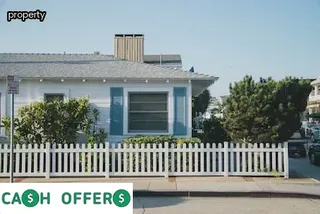Zoning rules and regulations are important for home sellers in West Virginia to understand. Knowing the zoning rules and regulations in your area can help you avoid any potential issues when it comes to selling your home.
All cities, towns, and counties in West Virginia have a zoning ordinance that dictates how land can be used. Zoning ordinances include details about building size and placement, as well as what types of businesses are allowed in certain areas.
Additionally, some areas may require special permits or approvals before construction projects can begin. It is important to familiarize yourself with the zoning regulations of your local area to ensure that you comply with all applicable laws.
Understanding zoning rules and regulations can also help you determine whether or not certain potential buyers would be able to build their desired structures on the property they are purchasing from you. As a home seller in West Virginia, understanding the local zoning rules and regulations should be an integral part of your complete guide to disclosures prior to closing on the sale of your home.

In West Virginia, home sellers must disclose any known illegal activity that has occurred on the property they are selling. This means that any previous activity such as drug manufacturing, prostitution, or other criminal behavior must be reported to potential buyers.
It's important for home sellers in West Virginia to understand their legal obligations when it comes to disclosing illegal activity. Furthermore, if a seller fails to comply with the disclosure laws in West Virginia, they may be subject to significant fines and penalties, which could include jail time or civil lawsuits.
Additionally, it is essential for sellers to understand that buyers may have the right to back out of a contract if they discover the seller failed to disclose any illegal activities associated with a property. As such, understanding the laws related to illegal activity disclosure is an integral part of protecting yourself as a home seller in West Virginia.
When it comes to home seller disclosures in West Virginia, a key area of focus is the water and sewer systems. All parties involved should understand exactly what type of water and sewer system is available as well as any potential problems that could arise with these systems.
Homeowners must disclose all known issues related to their water and sewer systems, including the condition of pipes, potential for flooding or other hazardous conditions, the age of the system and whether or not it meets current safety codes. Additionally, homeowners need to provide information on the availability of a public water supply or other alternative sources of water.
It's important for buyers to be aware if there are any additional costs associated with connecting to a public water supply or if they'll need to pay for private sewage removal services. Knowing this information can help buyers make a more informed decision when purchasing property in West Virginia.

In West Virginia, home sellers must disclose the structural condition of their property to potential buyers. This includes any damage or defects in the walls, floors, ceilings and roofing that may affect the habitability and safety of a residence.
A seller must also provide information on any structural systems such as plumbing and electrical wiring, as well as any improvements or repairs made to these systems. Buyers should ask for clarification on any items listed in home seller disclosures that they are uncertain about, as this could affect the safety of their future home.
Additionally, buyers should evaluate each disclosed item to determine if it falls within an acceptable range for their purposes. It is important for a buyer to understand all aspects of a home's condition before making an offer so they can make an informed decision on how best to proceed.
In West Virginia, home sellers need to disclose information about any plumbing, HVAC, or electric installation in the home. This includes informing potential buyers if any of these systems have been modified or repaired in the past.
Furthermore, sellers should also provide details on the age of these installations, as well as any warranties that may apply to them. While it is not a requirement to include this information when selling a home in West Virginia, it can help ensure that all parties involved in the transaction are protected and aware of any potentially existing issues.
Knowing all relevant details regarding plumbing, HVAC, and electric installation helps buyers make an informed decision and allows sellers to remain compliant with their disclosure obligations.

When it comes to hazardous materials disposal in West Virginia, home sellers should be aware of the various rules and regulations that need to be followed. It is important for a seller to disclose any hazardous materials present on the property, such as lead paint or asbestos.
Failure to do so can lead to potential legal action by buyers. Additionally, sellers may be liable for any damage resulting from improper disposal of hazardous materials.
For this reason, it is important for sellers to take proper precautions and follow all applicable laws when disposing of hazardous materials. Furthermore, they should always consult with local authorities and professionals in order to ensure that they are fully aware of their responsibilities regarding hazardous material disposal in West Virginia.
When selling a home in West Virginia, it is essential to understand the seller disclosure requirements. Home sellers must disclose any known material defects in their property before making a sale.
This includes issues related to the home’s structure, roof, plumbing, heating and air conditioning systems, electrical systems, appliances, and more. If the seller does not make these disclosures prior to the sale of the property, they may be held responsible for any damages or expenses incurred by the buyer after closing.
Buyers should also be aware that in some circumstances, sellers may need to obtain an inspection from a licensed inspector and provide a copy to potential buyers. The inspection report will identify current or potential safety hazards that must be disclosed before closing.
Additionally, sellers must also provide buyers with information about any zoning changes or environmental concerns that could affect the value of their property. Following these guidelines can help ensure both buyers and sellers have all the necessary information before signing a contract.

Selling a home in West Virginia comes with the responsibility of providing buyers with disclosure documents. As a seller, it’s important to understand the laws and regulations surrounding these documents to ensure you’re compliant and avoid any potential legal issues.
To help, here are some strategies you can use when it comes to home seller disclosures in West Virginia. First, make sure you are familiar with all the state laws regarding home seller disclosures.
This includes understanding what needs to be included in the disclosure documents as well as any timelines for providing them or updates that need to be made within a certain timeframe. Second, familiarize yourself with any local ordinances or county records related to your property that may impact disclosure requirements.
Third, check with a real estate attorney if you have any questions about what needs to be disclosed and how to do so properly. Finally, keep detailed records of all disclosure documents provided throughout the process so you can easily reference them later on if needed.
By following these strategies, sellers can help ensure they meet all applicable laws and regulations when it comes to disclosing information about their property in West Virginia.
As a home seller in West Virginia, you may have many questions about the state's disclosure requirements. One of the most common questions is whether or not you must provide a disclosure form to prospective buyers.
The answer is yes - West Virginia requires all sellers to provide a Property Disclosure Statement to potential buyers prior to signing any sale agreement. Additionally, if the property was built before 1978, you must include information about any lead-based paint that may be present in the home.
Other important disclosures sellers should consider include information on any material defects or environmental hazards that could affect the value of the property, as well as any existing liens or other financial obligations associated with it. It's also important to understand your legal responsibilities regarding any applicable warranties and guarantees that come with selling a home in West Virginia so that you can make informed decisions when dealing with potential buyers.
By thoroughly researching and understanding these laws, you can ensure that your sale is completed properly and without issue.

When selling a house in West Virginia, it is important for the seller to understand their responsibilities when it comes to disclosing information about the property. West Virginia has specific laws in place to protect consumers and ensure they are aware of any potential issues or risks related to the home.
The West Virginia Real Estate Commission requires sellers to provide certain disclosures that must be made before any sale can take place. These include disclosures regarding lead-based paint, real estate taxes, HOA assessments, zoning regulations, and other information about the property that could affect its value.
Additionally, sellers should also provide buyers with an inspection report as well as any warranty information on major systems such as plumbing and electrical. In addition to these required disclosures, sellers may also choose to provide additional information about the home's condition to potential buyers.
By understanding their responsibilities when selling a house in West Virginia and providing the necessary disclosures, sellers can help ensure a fair and successful transaction for both parties involved.
In West Virginia, buyers have certain rights when it comes to purchasing property. These rights are outlined in the state’s Disclosure of Property Condition law and the Home Seller Disclosure Act.
According to these laws, sellers must provide written disclosure of any known defects or material information that could affect the value or desirability of the property. This includes information such as building permits, zoning violations, hazardous materials on the property, and any improvements or repairs made within the last year.
Additionally, buyers have the right to request a radon test prior to closing and can cancel the contract if results exceed four picocuries per liter. The seller is also responsible for disclosing any major home systems and appliances that come with the home and describing their current condition.
All these disclosures should be included in the purchase contract for both parties to review before signing.

As a home seller in West Virginia, it’s important to protect your interests. Understanding the disclosure requirements is an integral part of ensuring that you have all your bases covered.
In most cases, sellers are responsible for providing potential buyers with information about their property before entering into negotiations. In West Virginia, there are certain disclosures that must be made in order to meet legal requirements and offer potential buyers sufficient knowledge of the property they’re interested in purchasing.
These disclosures include known defects, issues with the land or structure, and any hazards or nuisances that may be present. Disclosing this type of information can help both parties avoid expensive and time-consuming disputes down the road, while also making sure that the buyer has complete knowledge of any issues that could affect their purchase decision.
Being aware of your obligations as a home seller in West Virginia will help you protect yourself and your interests throughout the process.
Selling a house in West Virginia can be a complicated process, especially when it comes to the home seller disclosures required by the state. It's essential for sellers to understand their responsibilities and obligations in order to remain compliant with state laws and regulations.
Thankfully, there is now a complete guide to help walk sellers through the disclosure process. The guide covers all aspects of disclosure requirements, including information on who must provide disclosures, what disclosures are required and when they should be provided.
It also provides an overview of penalties for non-compliance as well as resources for more detailed information. With this comprehensive guide, West Virginia home sellers can rest assured that they have taken the necessary steps to ensure compliance with the law and successfully complete the sale of their home.

When it comes to the home seller disclosure process in West Virginia, it's important to understand and follow best practices. As a seller, you must provide buyers with accurate information about the condition of your property.
Start by thoroughly inspecting your home and making note of any required repairs or improvements that need to be addressed prior to listing. Be honest and open when disclosing any known issues or defects with the property.
Additionally, obtain a current radon gas test and make sure that any lead-based paint disclosures are completed as well. In some cases, sellers may also need to provide additional documents such as energy efficiency records or surveys.
Ultimately, following best practices for completing home seller disclosure forms in West Virginia will ensure that both parties are properly informed throughout the transaction and can help protect you from potential future legal action.
If you are a home seller in West Virginia, there are many resources available to help you understand the process of selling a property. It is important to understand the various laws and regulations that apply to home sales in the state.
Your real estate agent should be able to provide additional information on these topics. The West Virginia Real Estate Commission website provides access to a number of useful documents, including seller disclosure forms.
You can also find information about home seller disclosures on websites such as Zillow or Realtor.com.
The West Virginia Department of Environmental Protection has published several publications about issues related to selling a home, such as environmental regulations and property transfers. Additionally, you can consult with an attorney who specializes in real estate transactions if you have questions or need more detailed advice about disclosure requirements and other legal matters related to selling a home in West Virginia.

When selling a home in West Virginia, there are certain disclosures that need to be made which are legally required. These disclosures include any known defects of the property, such as structural damage or any issues with plumbing, electrical wiring, heating and air conditioning systems.
Additionally, sellers must provide buyers with copies of all documents related to inspections and repairs that were done on the property over the past few years. This includes a copy of the Certificate of Occupancy from the local government and any other papers related to zoning or building permits.
Furthermore, sellers must disclose any service contracts or warranties that have been procured for items such as HVAC systems or appliances. The buyer also has a right to know about any lead-based paint hazards that may exist on the property.
Lastly, sellers should make sure they have provided all prospective buyers with a copy of the Seller’s Property Disclosure Statement prior to closing on a sale. This document outlines all known information about the condition of the house and its location.
It is also important for sellers to keep records of every disclosure they make so that they can prove compliance if needed in court at a later date.
In West Virginia, sellers must disclose to buyers any information that could affect the value of the property. This includes all known facts about the condition of the house, such as water damage, structural problems, environmental hazards and other defects.
Additionally, sellers must provide documentation regarding any past or pending legal action against the property or its owners; information about boundary lines and easements; and disclosure of any restrictions or covenants placed on the property by a homeowners' association. In addition to this required information, it is also recommended that sellers disclose any lead-based paint inspections they have had completed on their home, as well as details concerning utilities and neighborhood noise levels.
By providing buyers with these essential pieces of information upfront, sellers in West Virginia can ensure that buyers feel confident in their purchase decision.

A home seller in West Virginia has certain obligations to disclose information about their property in order for the sale to be considered valid. The Real Estate Seller Disclosure Act of 2008 requires that sellers provide potential buyers with a written document containing relevant information about the condition of the home and its systems.
This includes identifying any known defects that could affect the value or desirability of the property, as well as any hazardous materials or conditions present on or around the premises. Additionally, sellers must also provide buyers with records of any past inspections, repairs, termite treatments, warranties, and other relevant documents regarding the home’s history.
It is important for sellers to accurately and thoroughly disclose all relevant information so that buyers can make an informed decision when purchasing a home in West Virginia.
Yes, you can sell your house without a realtor in West Virginia. To do so, you'll need to familiarize yourself with the state's home seller disclosure regulations.
In West Virginia, sellers are required to provide prospective buyers with certain disclosures, such as information concerning any known defects of the property or any past litigation that may affect it. To ensure compliance with these regulations and avoid potential legal issues, it's important for homeowners to understand the requirements and be aware of their obligations when selling their property.
This guide will provide an overview of all the relevant home seller disclosure rules in West Virginia so that you can be sure that you've fulfilled all your responsibilities when selling your house.
A notice of disclosure pursuant to the West Virginia Residential Property Disclosure Act is a document that must be provided by a seller before entering into a residential real estate sale agreement. The purpose of this disclosure is to provide potential buyers with information about any known defects or issues regarding the property, such as flooding, roof damage, or pest infestations.
This document must be filled out in its entirety and signed by both the buyer and the seller in order for the sale to be considered valid. It is important to note that sellers are obligated to disclose all material facts that they are aware of; failure to do so may result in legal action from the buyer should they become aware of any undisclosed issues post-sale.
Additionally, sellers are also liable for any misrepresentations made on this form regardless of whether they were intentional or unintentional. As such, it is imperative that home sellers carefully review and sign this document before entering into any residential real estate sale agreement in West Virginia.